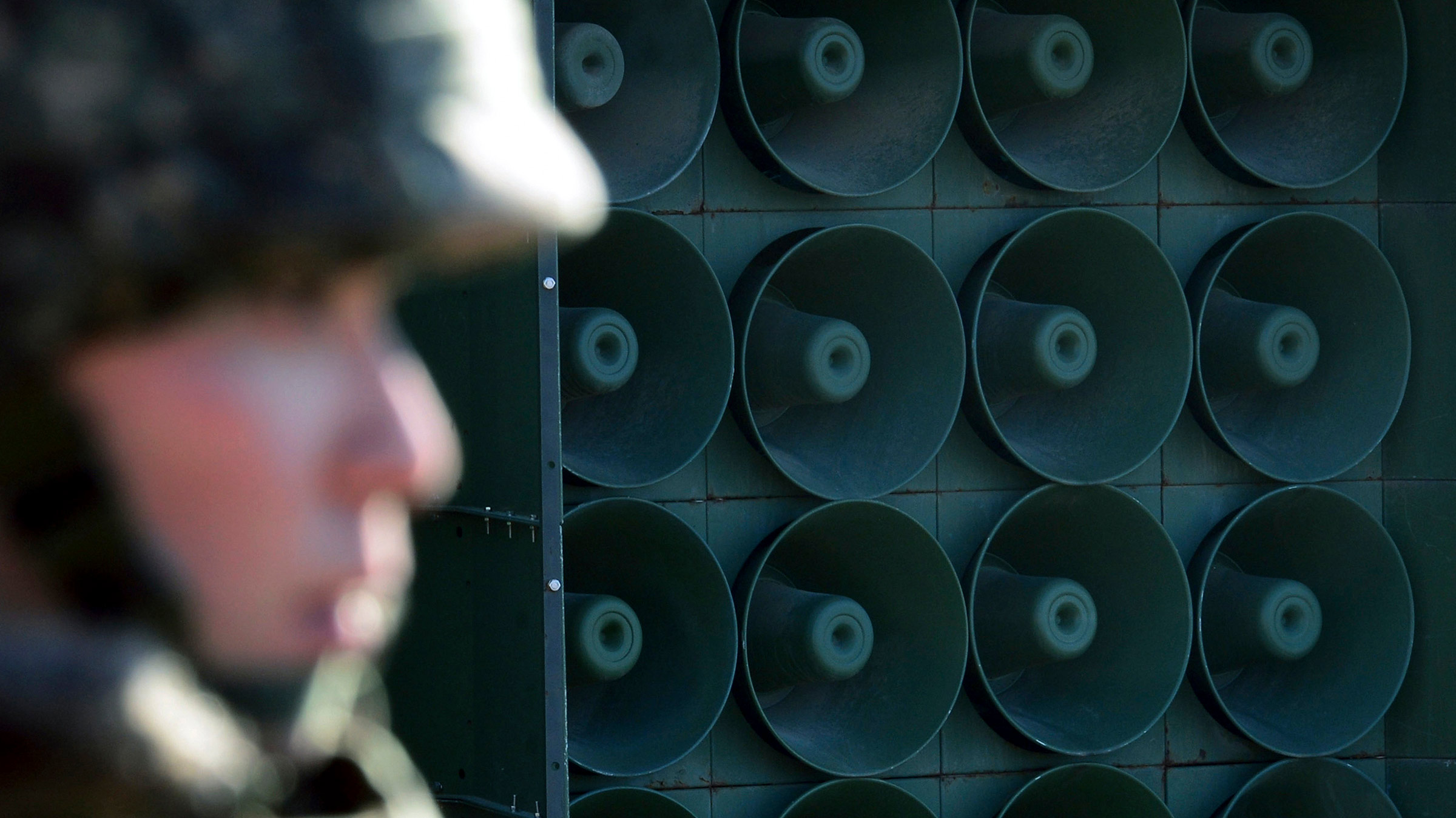As the leader of North Korean and South Korean await an historic sit down, an aural peace has descended on the peninsula as South Korea halts their decades-long tirade of physiological warfare in the form of very, very loud K-Pop.
For decades now, the level of political tension in the Korean war has been signified by the number of decibels ringing out from across the border. Described by the New York Times as the “Hello Kitty offensive” sound has long been used as a form of propaganda and political warfare in that part of the world. On an island off the coast of China, the Taiwanese once erected the world’s loudest outdoor speakers to inform their enemies that “Taiwan is a treasure island,” and “We will come to save you from hell.’
The recent musical battle on the Korean peninsula erupted again in 2016 when the point of contention between the two countries heightened thanks to North Korea setting off nuclear blasts. Before then the two countries had enjoyed an 11-year silence.
At the time, CNN reported that South Korea decided to switch on the military green megaphones and started to play this aggressive K-pop number
With finger guns blazing in the video, the only English lyric is a chorus of “bang, bang, bang,” suggesting the song is anything but a lullaby. The BBC have speculated that the reason for the music is to try and encourage North Korean soldiers to defect and cross the border into freedom. South Korea also broadcasts political chatter and weather updates. “Useful things for Northern soldiers to listen to—news from both Koreas and abroad which won’t otherwise be heard over the border, dramas, favorable discussion of democracy, capitalism and life in South Korea, and less favorable comments on corruption and mismanagement in the North.”
However, the internal sonic warfare propagated by the piece of land that separates China and Japan goes both ways. In 2016, the British tabloid the Daily Star reported reported that North Korea, too, had been using songs to spread their political message far and wide. Their Daily Star’s South Korean guide informed journalist Michael Havis that it’s “propaganda music, blared across the border all day, every day.” Literally singing the praises of the hermetic state leader, the music only goes off when the resource-poor country suffers from a power outage. With the recent diplomatic progress between American, Japan, Korea, China, South Korea and North Korea, we’ll see how long the sound of silence rings out.







